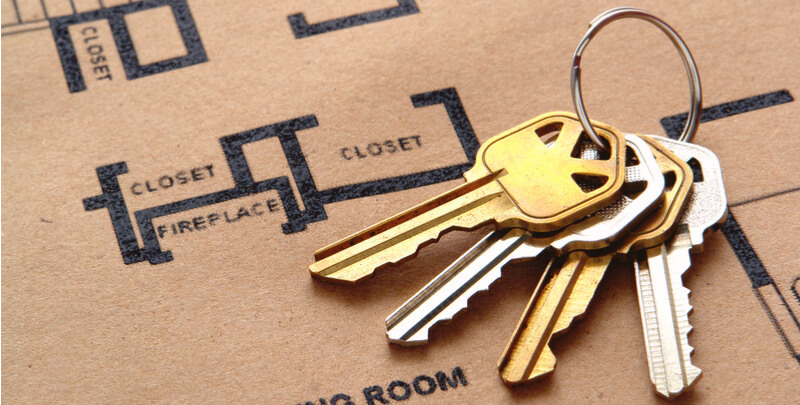Brazil digital nomad visa: Complete guide
Read our complete guide to the Brazil digital nomad visa, covering fees, documents, eligibility requirements and application process for 2025.

Brazil is the largest country in South America, but most of the nation’s population lives in cities. In fact, about 82 of every 100 Brazilians reside in urban environments. The South American country is also a popular location for expats interested in learning Portuguese or experiencing the country’s beauty. Despite the fact that in recent years some international companies have pulled their employees out of Brazil, there are still many opportunities for expats interested in exploring Brazil’s culture.
Many expats moving to Brazil live in large cities, like Rio de Janeiro or São Paulo. Smaller cities like Belem and Manaus are also gaining popularity with expats and international travelers. The cost of living varies greatly between the differently sized cities as well - an average furnished apartment in Belem will cost around R$1,410 while the same type of apartment in Rio de Janeiro will cost around R$2,690.
Most rentals in Brazil fall into one of three categories: private rentals from an owner, assisted private rentals with the help of an agent or short-term rentals from an owner or company. Short-term rentals are considered to be anything less than 30 months, however, those type of contracts are rare (but not unheard of). Most newcomers to Brazil start with a private rental, because owners tend to be more flexible than agents and companies - who can sometimes require local co-signers or large deposits.
As is often the case when moving to a new city, many of the best deals for rentals are learned about through word-of-mouth. If it’s possible to stay in a short-term rental while looking for a more permanent rental, you may have more options finding something in person vs. long distance. However, due to Brazilian rental laws many short-term rentals are apartment shares, which isn’t always ideal for expats, especially those with families. If you can find a local from the area who is willing to help you through the process, or find an agency that specializes in working with expats, your search will be much easier.
Searching for an apartment and sifting through real-estate jargon is hard enough in your native language, let alone one you don’t understand very well. It’s a good idea to familiarize yourself with some key Portuguese terms like the following before you start your search:
Most private rentals will allow for negotiation, as you’re working directly with the owner. Using an agency or renting through a company offers less flexibility because they have more rules and guidelines to follow, however, it’s not necessarily impossible.
Typically, long-term renters will be required to pay two to three months rent as a deposit. By law, building owners or landlords are required to put your deposit into a savings account that's separate from their own. When you get your deposit back at the end of your contract, any interest earned is yours to keep. For short-term renters, in-person contracts will usually only require monthly payments. However, if you’re making the decision from outside the country, the owner or company will often ask for a 50% down payment for the length of the agreed upon time. Brazilian law states that landlords can only ask for one form of guarantee, whether that’s in the form of a co-signer or a large deposit.
Many rental contracts in Brazil will also require notarization. This typically will need to be done in Brazil, as foreign-notarized documents are often not accepted by landlords. There’s a plethora of information included on the rental contract, as is the case in most countries. It might be a good idea to review Brazil’s typical clauses and contract details ahead of time.
Generally, renters are expected to pay for their own utilities, like electricity and water. Depending on the situation, you might also be expected to pay the condomínio, which is a fee for living in a condo or apartment that’s usually used to cover amenities, electricity, and cleaning and maintenance of common spaces. There are also taxes (known as IPTU) that may be paid by the renter or the landlord. If the landlord pays, it’s usually reflected in a higher overall cost of rent.
Brazil is one of few South American countries that’s steadily moving away from a cash-based economy. In fact, the use of electronic payment systems is growing by about 9% every year. Because of this, most landlords prefer payment by an online bank transfer, but watch out: these payments typically have to originate from a local bank.
If you’re planning to fund your apartment rental from your account abroad, you’ll need to transfer money into a local bank before paying your landlord. These transactions can be expensive, so it’s wise to use a service like Wise to ensure you’re getting the real exchange rate and to cut down on international fees. Once the money is in your local Brazilian bank account, the process of initiating your rent payment will usually be very simple.
If you’re looking for a new apartment from abroad, the best place you can start is online. These sites may be helpful as you start your search:
Many scams in Brazil that target renters are similar to scams in other countries - although, as mentioned above, asking for a 50% contract payment as a deposit isn't abnormal for expats setting up a rental agreement from abroad. Working with a local agency or trusted friend when contacting owners, talking to your potential new neighbors, and thoroughly reading documents with the help of a Portuguese translator are all good ways to avoid being scammed.
Making the choice to move to Brazil will probably be easier than deciding on an apartment to live in, however, the city, culture, warm locals and weather all make the hassle worth it. There are plenty of great apartments are out there, if you’re willing to put the time and energy into finding them. Good luck!
*Please see terms of use and product availability for your region or visit Wise fees and pricing for the most up to date pricing and fee information.
This publication is provided for general information purposes and does not constitute legal, tax or other professional advice from Wise Payments Limited or its subsidiaries and its affiliates, and it is not intended as a substitute for obtaining advice from a financial advisor or any other professional.
We make no representations, warranties or guarantees, whether expressed or implied, that the content in the publication is accurate, complete or up to date.

Read our complete guide to the Brazil digital nomad visa, covering fees, documents, eligibility requirements and application process for 2025.

If you’re from the UK and planning a trip to Brazil - or elsewhere for that matter - you might have heard of the Wise card as a smart multi-currency debit...

Let’s face it, Brazil isn’t known for their world class education system. Ranked #32 in the world for their schools, the South American country has faced a...

Rio de Janeiro is one of the richest cities in Latin America, with a diverse economy covering finance, manufacturing and tourism among its developed sectors....

Brazil is huge - the largest country in South America - and all the major cities are home to active communities of expats. International arrivals are drawn by...